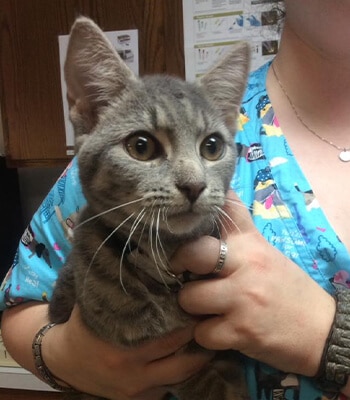Dog and Cat Allergy Treatments in Waynesboro
When your pet has a serious itch, it can be just as frustrating for you as it is for them. At Animal Hospital of Waynesboro, we have helped to treat countless dogs and cats for allergies, infections, and other skin-related problems. We know firsthand how difficult it can be to get these problems under control, but there are solutions! Our animal hospital offers various methods for diagnosing and treating pet allergies and skin disorders.
Keep your pet’s condition under control.

Allergy Symptoms That Can Plague Our Pets
Itching is just one part of what is usually a bigger health problem for pets. Furthermore, it often results in secondary infections, which can make your pet’s itching even worse. Look for these outward symptoms to determine whether your pet needs to see their vet right away:
- Red, raw and inflamed skin
- Dry, scaly patches of skin
- Patches of hair are missing
- Skin is giving off an unpleasant odor
- Coat is greasy and lusterless
- Fur missing between the toes, under the legs, and on the belly
- Red, swollen, painful ears
- A dark brownish buildup in the ears
- Small bumps on the skin

Dog and Cat Allergies and Other Causes of Skin Problems
Allergies are a major cause of skin problems, but they are not the only ones. Fungal infections and autoimmune disorders may also result in itchiness, hair loss, and skin damage. Diagnostics play an important role in helping us accurately identify and treat the conditions that are making life difficult for our patients.
Our Veterinarians Are Well-Equipped to Help Your Pet
Skin disorders, allergies, and bacterial infections of the skin can be very stubborn to treat, especially if they have been progressing for a long time. To combat this stubbornness, our animal hospital offers various means for diagnosing your pet’s condition and treating it effectively. Our team in Waynesboro can do in-hospital testing for infections, and for allergies, we combine in-house testing with specialist referral testing for a complete evaluation.
Our treatment options include:
- Oral medication (Apoquel and Atopica)
- Laser therapy for highly-inflamed skin conditions
- Antibiotics
- Shampoos and ointments
- Hydrolyzed diets
- Injectable medication (Cytopoint)

